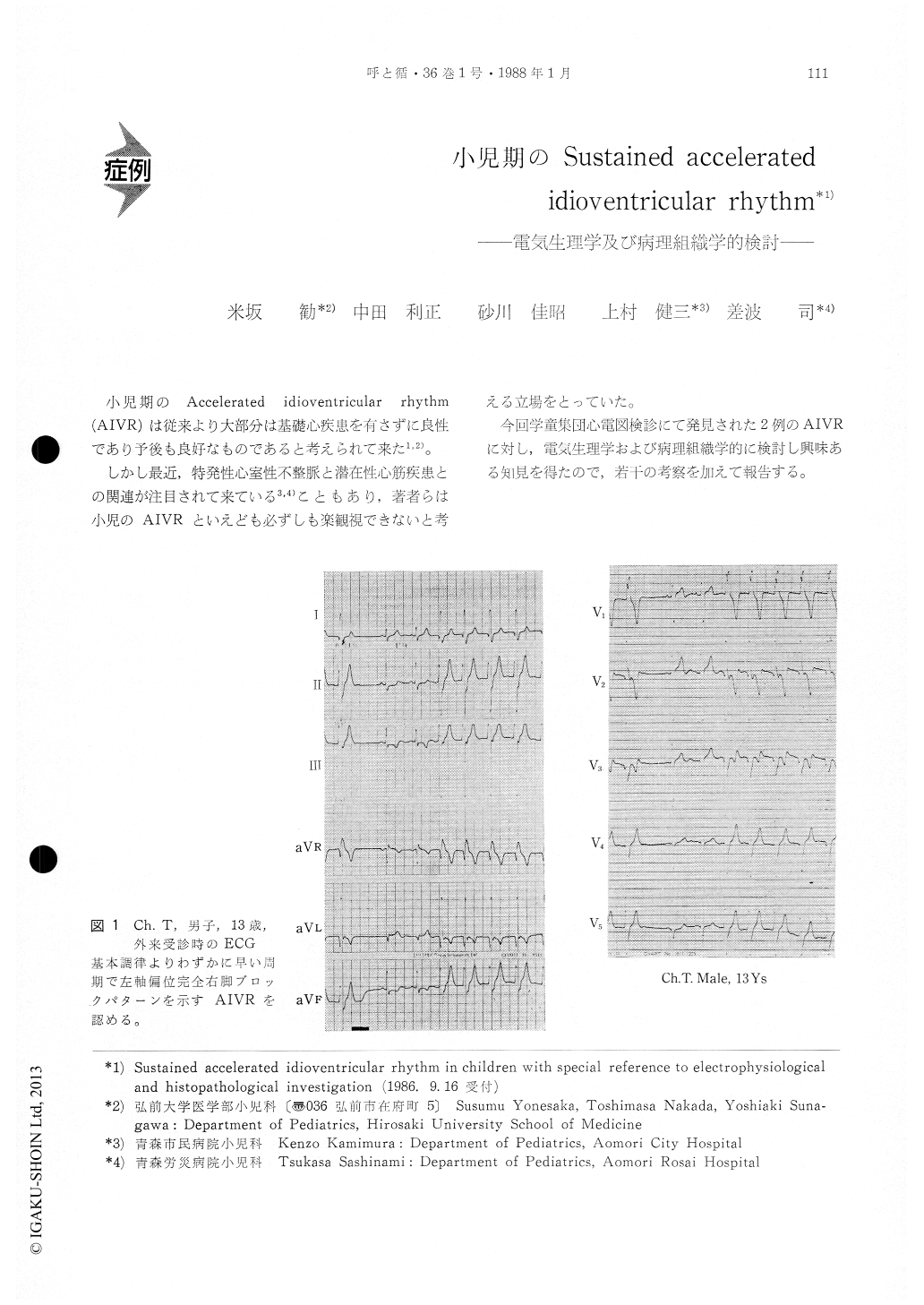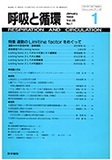Japanese
English
- 有料閲覧
- Abstract 文献概要
- 1ページ目 Look Inside
小児期のAccelerated idioventricular rhythm(AIVR)は従来より大部分は基礎心疾患を有さずに良性であり予後も良好なものであると考えられて来た1,2)。
しかし最近,特発性心室性不整脈と潜在性心筋疾患との関連が注目されて来ている3,4)こともあり,著者らは小児のAIVRといえども必ずしも楽観視できないと考える立場をとっていた。
Accelerated idioventricular rhythm (AIVR) with-out apparent heart disease in childhood have been reported that this arrhythmia is benign and have good prognosis. We presented two cases with AIVR, who were detected by mass screening of ECG for schoolboys and -girls. One case revealed idiopathic aortic regurgitation, mild sinus nodal dysfunction with normal cardiac function, and the other case had no apparent heart disease but had dysfunction of both sinus node and AV node and decreased left ventricular ejection fraction.
Both cases were performed endomyocardial biopsy from right ventricle, showed nonspecific histopatho-logical abnormalities, such as hypertrophy of myo-cytes, myocellular disarray, interstitial and perivas-cular adipose tissue infiltration and vascular sclerosis. AIVR was reported in adult more frequently than in children. AIVR in children have been recognised that it has rarely structural heart defect and so no needs of therapy for this arrhythmia. However, from our experience, we recommend further ex-amination including endomyocardial biopsy and electrophysiological study for the cases with AIVR who show any additional symptoms and signs, such as newly appeared heart murmur during follow-up, syncopal due to possible heart origin, other ad-ditional arrhythmia in Holter ECG and evidence of cardiac dysfunction by 2-D echo, since AIVR may be the first manifestation of the cardiomyopathy and silent valvular disease.

Copyright © 1988, Igaku-Shoin Ltd. All rights reserved.


